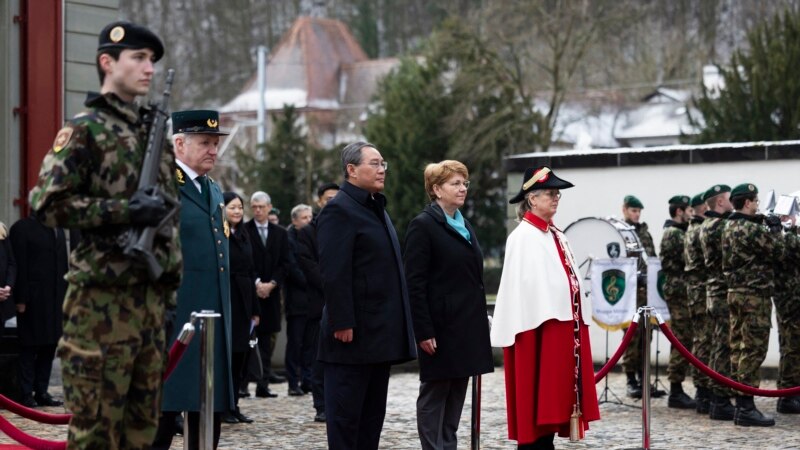
China will put on a show of force Tuesday with a large delegation represented by Prime Minister Li Qiang at the annual meeting of global elites in Davos, despite shadows cast by wars raging in Ukraine and Gaza.
Ukrainian President Volodymyr Zelenskyy is also attending the World Economic Forum in person for the first time since Russia’s invasion in 2022, hoping to drum up more aid as the conflict approaches its second anniversary.
Kyiv has been scrambling to ensure financial support does not waver for Ukraine during the biggest war in Europe since World War II, as the world’s attention has swayed to the Middle East amid fears of a spillover from the conflict in Gaza.
Li and Zelenskyy will be addressing global and business A-listers who descend on the Swiss Alpine resort of Davos every year for a week of serious talks and schmoozing.
Li, who will make a special address on Tuesday, will be the most senior Chinese official to attend Davos since President Xi Jinping in 2017.
He will be joined by Chinese Commerce Minister Wang Wentao, the governor of the People’s Bank of China and high-ranking representatives from other ministries, including Deputy Foreign Minister Ma Zhaoxu.
Li will hold talks with EU chief Ursula von der Leyen, but it is not yet clear if he or the deputy foreign minister will meet U.S. Secretary of State Antony Blinken.
His speech will be closely followed after tense presidential elections at the weekend in Taiwan, the democratic island that Beijing claims as part of China.
After self-ruled Taiwan’s president-elect Lai Ching-te welcomed an American delegation following his election victory, China on Monday hit back that it was “firmly opposed” to all official exchanges between the United States and Taiwan.
Li and Zelensky will be among 60 heads of state and government attending Davos, including Middle East leaders, joined by 800 chief executives among a total of 2,800 participants.
Other key speakers on Tuesday will be von der Leyen and NATO head Jens Stoltenberg. Von der Leyen will also hold private talks with Zelenskyy as well as Blinken and Hungarian President Katalin Novak.
European Union leaders will hold talks next month in a bid to approve a $55 billion aid package for Ukraine that was vetoed in December by Hungary.
The U.S. envoy for Ukraine’s economic recovery, Penny Pritzker, said the country was facing a “tough moment” and acknowledged “a lot of uncertainty as it relates to the U.S. and EU assistance,” but said Washington had offered reassurances to Kyiv.
“They worry about a distracted international community and that the international community might lose faith,” she said during an event on Monday.
Republicans in the U.S. Congress are blocking a renewal of U.S. military assistance for Ukraine, and Kyiv and its allies worry about reduced support if Donald Trump wins the U.S. presidential election later this year.
Politicians and business leaders will discuss how to build consensus on a multitude of risks worldwide including climate change and a cost-of-living crisis.
Attendees will also grapple with how to maintain global trade after attacks by Yemeni rebels in the Red Sea disrupted the key conduit for Asia-Europe shipping.
Artificial intelligence will also dominate discussions after last year’s flurry of examples demonstrating the technology’s dizzying advances.
Despite the excitement, there are worries about the threats posed by AI.
Misinformation and disinformation driven by AI ahead of elections in countries, including the United States, are the biggest global risks this year and next, the WEF said last week.
The International Monetary Fund’s managing director, Kristalina Georgieva, told AFP in an interview that AI would affect 60% of jobs in advanced economies.
There will be an array of discussions at Davos during formal and informal events with some of the biggest names in tech, including the chief executive of Microsoft, Satya Nadella, and OpenAI’s Sam Altman.
